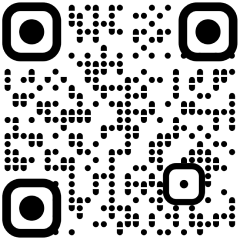MUMBAI: In its recent order, a division bench of the Supreme Court (SC) has held that provision of interest free or concessional loans provided by banks to its employees shall be taxable in their hands as a perquisite under section 17 of the Income-tax (I-T) Act. This is not in violation of Article 14 of the Indian Constitution. This order was given in the case of All India Bank Officers’ Confederation.
The I-T Act contains provisions for taxation of perquisites under the head ‘Salary’ in the hands of employees. Section 17 (2) defines perquisites to include rent-free or concessional residential accommodation, meeting of personal expenses by the employer, or its contribution to various funds. Rule 3 lays down the valuation norms.
Section 17(2) contains a residual sub-clause (viii), introduced in 2001, which provides that the value of any other fringe benefit or amenity as may be prescribed by CBDT shall be included in ‘perquisite’.
In this regard, Rule 3(7) prescribes various types of fringe benefits or amenity like interest-free or concessional loan, travelling/touring/accommodation, free food and non-alcoholic beverages, gifts or vouchers, credit card expenses, club membership, use or transfer of movable assets and any other benefit or amenity, service, right or privilege. Rule 3(7) also provides the basis of valuation for such fringe benefits. Rule 3(7)(i), inter-alia, provides that the value of the benefit to the taxpayer resulting from the provision of interest-free or concessional loan for any purpose made available to the employee or any member of his/her household shall be determined by reckoning the interest rate charged by SBI as on the first day of the relevant tax year for similar loans.
The present rule for computing the interest concession benefit by benchmarking with SBI rate was introduced in 2004. Prior to that, from 2001 to 2004, the interest concession was benchmarked to fixed rate of 10% p.a. for housing/motor car loans and 13% p.a. for other loans. Thus, the perquisite valuation was changed from a static benchmark of 10%/13% to a dynamic benchmark of State Bank of India’s (SBI’s) rate.
Bank employees contended that the interest concession perquisite should be valued on the basis of ‘cost to employer’ and hence, it should be computed with reference to their own employer’s cost of borrowing and not SBI’s rate to customers. Thus, the constitutional validity of section 17(2)(viii) and Rule 3(7)(i) was challenged by employees before different high courts.
The provisions were challenged on the grounds of excessive delegation of essential legislative function to the Central Board of Direct Taxes (CBDT). Further, Rule 3(7)(i) was challenged as it provided for the primary lending rate of SBI to be the benchmark for perquisite valuation.
The SC decided both issues in favor of the tax authorities. It held that Section 17(2)(viii) and Rule 3(7)(i) do not lead to delegation of ‘excessive legislative function’. On the second issue, the SC held that Rule 3(7)(i) provides for a uniform basis of valuation for all employees. It does not treat unequal as equal. The fixation of SBI rate as benchmark rate is neither arbitrary nor unequal exercise of power.
The court remarked that SBI was the largest bank in India and the interest rates fixed by them impact the interest rates charged by other banks. Thus, a single clear benchmark fixed for computation of the perquisite prevents different interest rates being charged by different banks from the customers and checks unnecessary litigation.
According to a Tax Alert issued by EY-India: The present SC ruling is a landmark ruling on constitutional validity of perquisite taxation of fringe benefits including interest-free or concessional loans to employees. It upholds the principle that delegated authority to CBDT to not only prescribe the various types of fringe benefits but also provide for valuation thereof is within the delegative power of legislature. This is particularly because the legislative policy and standards are well defined in Section 17(2)(viii). At the same time, the SC has also clarified the boundaries of such delegated power – anything made taxable by CBDT under Section 17(2)(viii) should be a ‘perquisite’ in the form of fringe benefits or amenity.









